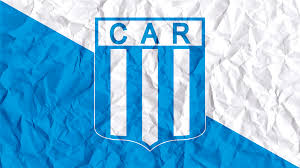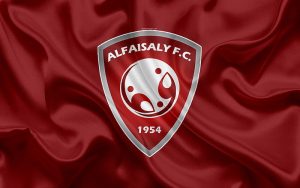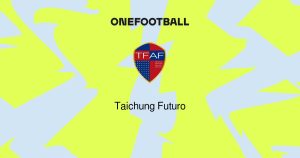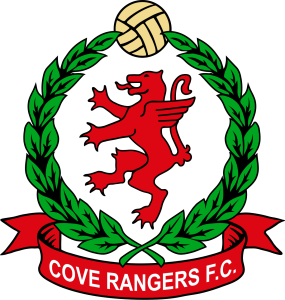
Racing de Cordoba FC
In today’s football landscape, financial sustainability is crucial for a club’s long-term success. Racing de Córdoba FC has recognized this, adopting robust strategies to manage its finances while still investing in necessary elements such as talent development and infrastructure.
The financial health of a club often determines its competitiveness, from player acquisitions to stadium refurbishments. Racing de Córdoba FC’s commitment to sustainable financial practices reflects good governance and a forward-thinking approach that emphasizes both growth and stability within the club’s culture.
Revenue Streams and Racing de Cordoba FC
Racing de Córdoba generates revenue through various channels, including ticket sales, sponsorships, merchandise, and television rights. Each of these streams plays a vital role, contributing to cash flow and ensuring the club can meet its obligations OK 9.
- Ticket Sales: Match-day revenues directly impact the club’s finances. By creating an exciting and family-friendly atmosphere, Racing de Córdoba draws local fans to their home games, enhancing the overall match-day experience. The club frequently runs promotions to attract various demographics, stimulating interest and increasing ticket sales.
- Sponsorships: Commercial partnerships are fundamental to the club’s revenue model. Racing de Córdoba has established relationships with local businesses, creating synergistic benefits that enhance brand visibility for both parties. These partnerships can take many forms, including kit sponsorship, signage at the stadium, and community initiatives, making them mutually beneficial.
- Merchandise: The club also capitalizes on merchandise sales, selling jerseys, scarves, and branded products that fans value. A well-designed merchandise line not only generates revenue but also builds a communal sense of belonging and solidarity among fans.
- Television Rights: Broadcasting deals contribute significantly to overall revenue. When Racing de Córdoba performs well on the pitch, they attract more viewers, further enhancing their television revenue. The club’s good performances lead to favorable deals with broadcast networks, translating to a stable income stream that can be reinvested into player development and venue improvements.
Investment in Infrastructure and Facilities
Infrastructure plays a vital role in a football club’s financial success. Racing de Córdoba understands this, investing in its training facilities, stadium, and fan experience. The investments may incur costs upfront but are intended to yield long-term benefits.
- Training Facilities: A high-quality training ground is paramount for the development of athletes. Racing de Córdoba has dedicated resources to enhance their training facilities, enabling their youth and senior teams to practice effectively. Modern amenities foster a professional environment in which players can hone their skills, staying competitive in both youth and adult leagues.
- Stadium Improvements: The club regularly assesses its home ground, seeking opportunities for upgrades that enhance fan experience. This may include expanding seating, improving hospitality options, or enhancing accessibility for all supporters. A world-class stadium not only boosts game-day revenues but also broadens the club’s appeal to potential sponsors.
- Fan Engagement Spaces: Investing in areas that promote community interaction and fan enjoyment reflects the club’s commitment to fostering a vibrant culture. Fan engagement spaces, such as lounges or family areas, invite members of the community to enjoy the matches together, reinforcing loyalty and commitment to Racing de Córdoba.
Balancing Ambition with Responsibility
Financial sustainability is not solely about increasing revenues. It also involves prudent management of expenditures and an understanding of the risks involved. Racing de Córdoba’s management is keenly aware of striking a balance between ambition and fiscal responsibility.
- Assessing Player Contracts: A careful approach to transferring players is essential. Racing de Córdoba is known for being strategic when it comes to signing new players, often focusing on potential rather than simply settling for big-name players. This strategy ensures that they do not overextend financially while still maintaining a competitive squad.
- Youth Investment: While investing in established players can yield immediate results, it can also draw heavily on financial resources. Racing de Córdoba’s focus on youth development alleviates some of this pressure, allowing the club to nurture home-grown talent rather than purchasing expensive recruits.
- Long-term Vision: The club has embraced a vision that places importance on long-term health rather than short-term gains. This involves a commitment to developing sustainable revenue streams, improving facilities, and continually engaging the community. In doing so, they build a loyal fan base that will remain supportive through both lean times and prosperous seasons.
Lessons in Financial Resilience
The experiences of Racing de Córdoba serve as lessons for clubs aiming to achieve financial sustainability in competitive sports environments. The club’s commitment to fiscal discipline sets a strong example for others, encouraging similar practices.
- Transparent Communication: Engaging with fans through transparent financial practices can build trust and loyalty. Sharing the financial journey with supporters fosters a sense of community, empowering fans to be invested in the club’s success.
- Adaptability in a Changing Landscape: In the world of football, market dynamics frequently shift. Racing de Córdoba’s proactive approach, which includes careful monitoring of market trends, ensures that they adapt swiftly to any arithmetic, economic, or regulatory changes—keeping the club’s trajectory on course.
- Community Engagement as Financial Strategy: A strong rapport with the community can lead to lasting revenue streams. By ensuring that the local fan base feels valued and connected, Racing de Córdoba can rely on this support, smoothing over financial volatility during challenging seasons.
Conclusion
Racing de Córdoba FC exemplifies the significance of financial sustainability in contemporary football. By diversifying revenue streams, investing in infrastructure, and maintaining fiscal discipline, they ensure a stable future while remaining competitive on the pitch.
As the club continues to forge ahead, both supporters and aspirants can admire this model of financial resilience. The lessons learned from Racing de Córdoba FC are valuable assets in the world of sports management, emphasizing that financial strategy and football cannot be treated as separate constructs. As they embark on new chapters in their journey, the club stands poised to inspire others in the footballing community.





